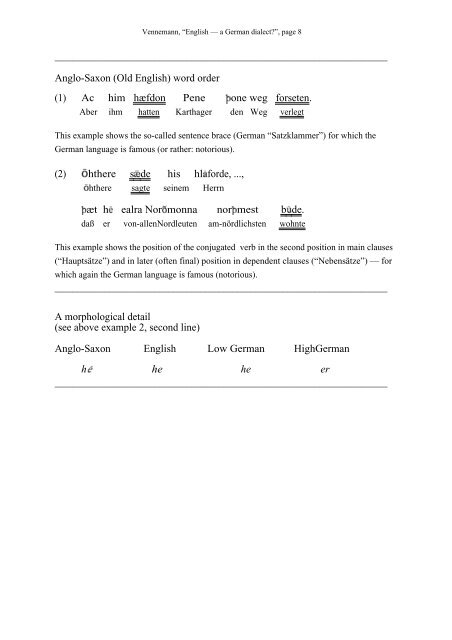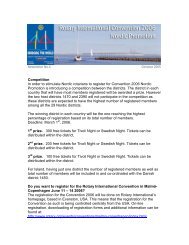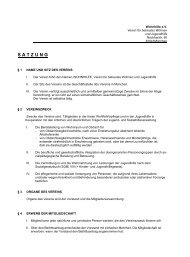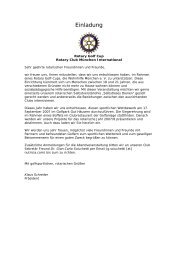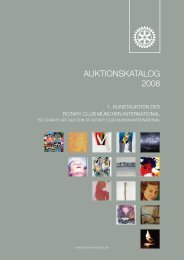English - a German dialect? - Rotary Club of Munich International
English - a German dialect? - Rotary Club of Munich International
English - a German dialect? - Rotary Club of Munich International
You also want an ePaper? Increase the reach of your titles
YUMPU automatically turns print PDFs into web optimized ePapers that Google loves.
Vennemann, “<strong>English</strong> — a <strong>German</strong> <strong>dialect</strong>?”, page 8<br />
_________________________________________________________________________<br />
Anglo-Saxon (Old <strong>English</strong>) word order<br />
(1) Ac him hæfdon Pene one weg forseten.<br />
Aber ihm hatten Karthager den Weg verlegt<br />
This example shows the so-called sentence brace (<strong>German</strong> “Satzklammer”) for which the<br />
<strong>German</strong> language is famous (or rather: notorious).<br />
(2) hthere s de his hl forde, ...,<br />
hthere sagte seinem Herrn<br />
æt h ealra Nor monna nor mest b de.<br />
daß er von-allenNordleuten am-nördlichsten wohnte<br />
This example shows the position <strong>of</strong> the conjugated verb in the second position in main clauses<br />
(“Hauptsätze”) and in later (<strong>of</strong>ten final) position in dependent clauses (“Nebensätze”) — for<br />
which again the <strong>German</strong> language is famous (notorious).<br />
_________________________________________________________________________<br />
A morphological detail<br />
(see above example 2, second line)<br />
Anglo-Saxon <strong>English</strong> Low <strong>German</strong> High<strong>German</strong><br />
h he he er<br />
_________________________________________________________________________


